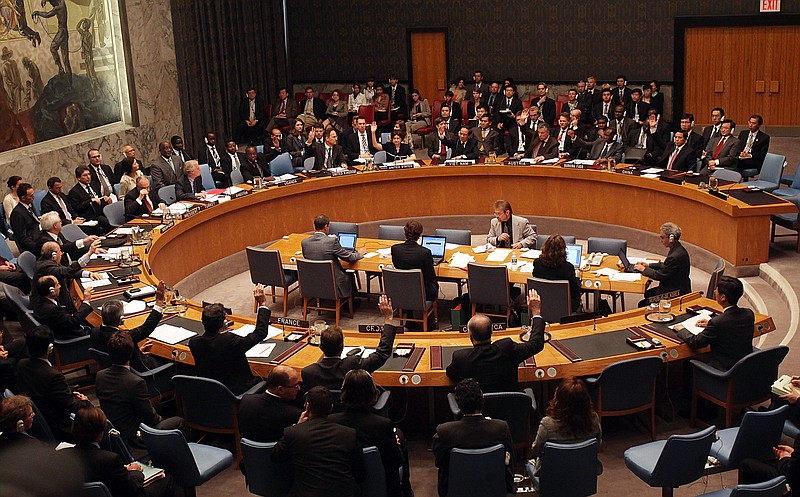China excludes pipeline
September 13, 2017 | Expert Insights

The UN has passed the harshest set of sanctions on North Korea after the nation conducted its sixth nuclear test.
However, key concessions have been made to China and Russia who fought against some of the stricter sanctions.
Background
The North Korean nuclear program has been a source of concern for the US and the international community for decades. In July 2017, North Korea successfully test launched two intercontinental ballistic missiles (ICBM).
After North Korea test launched a second ICBM, the UN Security Council unanimously imposed fresh sanctions on the country. These sanctions can significantly hurt North Korea’s $3 billion annual export revenue.
However, this did not deter North Korea. In August 2017, it flew a missile over Japan and called it the “first step” in its Pacific operations. It also conducted a nuclear test that triggered an earthquake of 6.3 magnitude.
The nuclear test was condemned by the United Nations. US sought to imposed fresh sanctions on North Korea to exert financial pressure on the nation to force it to back down from its nuclear program. China and Russia are the most influential allies of North Korea.
Analysis
The latest round of sanctions that have been imposed on North Korea are among the harshest to be imposed on the nation. There is now a ban on textile exports and a call to reduce oil imports by 30%. There is also a ban on hiring North Korean workers overseas. There are currently 100,000 North Koreans employed outside of the country.
A statement from the US mission to the UN called it the “strongest sanctions ever imposed on North Korea.” It read, “Combined with the previous Security Council resolutions, over 90 per cent of North Korea’s publicly reported 2016 exports of $2.7bn are now banned.”
According to experts, North Korea stands to lose $800,000 million in revenue through just the textile ban. However, the US was seeking far harsher sanctions on the country but was forced to compromise. It had to provide key concessions to China and Russia. US had originally proposed an embargo on refined petroleum exports to North Korea.
Additionally, the sanctions also did not seek to shut down the Dandong-Sinuiju oil pipeline that supplies 90 per cent of North Korea’s crude. Some experts have noted that this was due to Beijing’s unwillingness to absolutely cripple the hermit state. However, some have stated that there were also technical considerations that informed the decision. Liu Ming, a North Korean affairs analyst from the Shanghai Academy of Social Sciences has said, “The crude oil transported via the Dandong-Sinuiju pipeline contains a high proportion of wax. If the flow of oil slows or stops, the pipeline becomes blocked, which in turn is expensive to repair. The pipeline can even be damaged beyond repair in extreme cases.”
North Korea, however, has remained defiant in the face of the sanctions. Han Tae Song, North Korea's ambassador to the UN said that the sanctions were “illegal.” He added, “The forthcoming measures by DPRK [the Democratic Republic of Korea] will make the US suffer the greatest pain it has ever experienced in its history. Instead of making [the] right choice with rational analysis... the Washington regime finally opted for political, economic and military confrontation, obsessed with the wild dream of reversing the DPRK's development of nuclear force - which has already reached the completion phase.”
Assessment
Our assessment is that China and Russia are seeking to ensure that the isolated nation does not cripple in the face of the sanctions. If North Korea’s economy fails, then China would have to deal with increased illegal migration of people from North Korea to its borders. Additionally, if North Korea fails as a nation, then China will have to face a strengthened South Korea, an important ally for the US. This is also a cause of concern for Moscow. Hence, the two nations used their clout to agree to more tame terms for the sanctions.








Comments